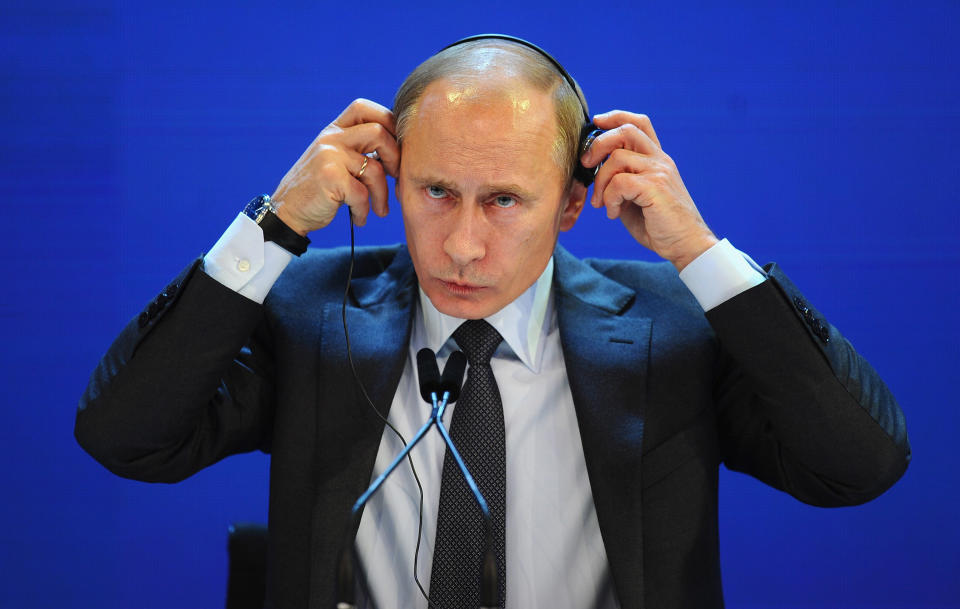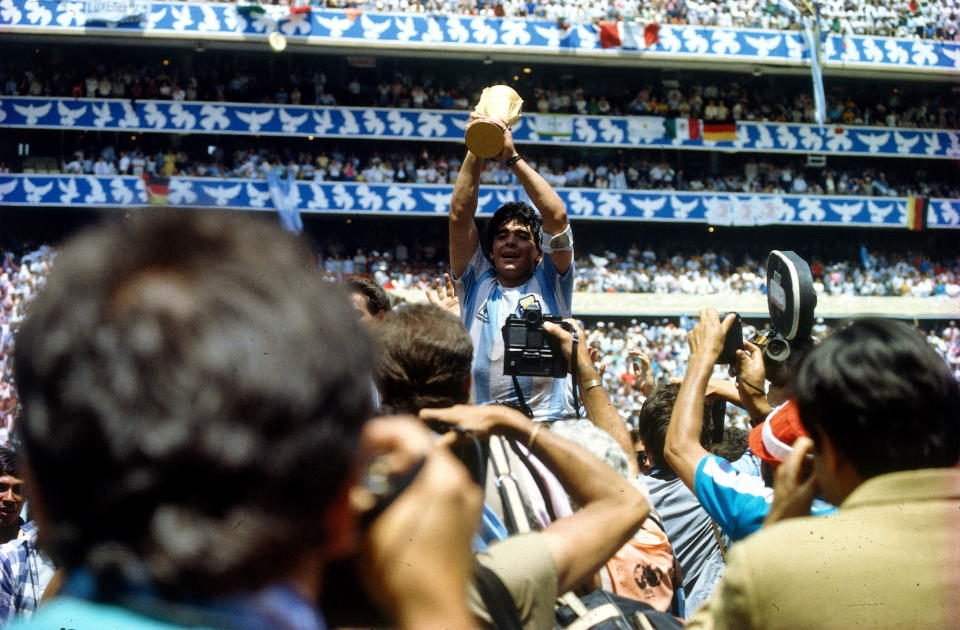This will be Putin's World Cup, with FIFA's implicit permission
This is not the first time a World Cup will be held in an authoritarian country, because let’s be honest and call Russia what it is. In fact, it’s fairly common. Of the 20 World Cups held so far, four were either held in dictatorships or in countries under oppressive one-party rule.
In that regard, Vladimir Putin’s World Cup hardly sets a precedent. It just retreads a well-worn path.
In 1934, the second World Cup ever played was staged in Italy during the fascist dictatorship of Benito Mussolini. He was, in fact, so closely involved with the national team, that it was nicknamed “Mussolini’s azzurri.” Not only did Italy spend lavishly on infrastructure for this tournament to show off its new might, but Mussolini himself reportedly got involved in fixing referees and logistics to favor Italy, although that was never proven. Italy won the World Cup all the same. But if it really did have help, it’s worth noting that the same team also won the 1936 Olympics — albeit in Adolf Hitler’s Games — and the 1938 World Cup in France. Ultimately, however, this World Cup was a major propaganda boon for Il Duce.
In 1978, a World Cup victory by Argentina in its home nation went a long in quelling the dissent in the early years of General Jorge Videla’s military junta. While thousands of political opponents were disappeared, imprisoned and tortured — some so close to the Monumental stadium in Buenos Aires that they could hear the cheers from their cells — an unremarkable Albiceleste slogged to the title. There was controversy aplenty, with suspiciously favorable refereeing and perks like the best kickoff times benefiting the home team. But the regime got what it needed, a first title for Argentina in extra time of a violent final against a Johan Cruyff-less Dutch team, quieting the opposition to its brutal rule somewhat.

In 1970 and 1986, Mexico’s government profited from this event in less obvious fashion. It put on a pair of World Cups — the second one after Colombia pulled out because of economic issues — while still dominated by a single party that cracked down on opposition on several occasions. The Institutional Revolutionary Party, or PRI, ruled without interruption — sometimes legitimately, and sometimes less so — for 71 years. And just two years before the 1970 World Cup, and mere weeks before the 1968 Olympics in Mexico City, government forces allegedly killed more than 300 student protesters in the Tlatelolco massacre. Two years after the 1986 World Cup, the PRI stole an election won by a candidate from a leftist party, refusing to cede power.
Each time, Mexico put on a glorious edition of the World Cup, claimed by memorable winners in Pele’s Brazil and Diego Maradona’s Argentina, respectively. In the eyes of the world, Mexico painted a pretty picture of itself.
In all these instances, the rulers of the host country benefited significantly from putting on the World Cup. Either because they put on a scintillating tournament, or because they smoothed the path to a title for the home team.
This will be Putin’s World Cup. And the freshly, if controversially, re-elected president — to a fourth term, in spite of a two-term limit which he skirted by spending a term as prime minister under a quasi-puppet president — will likely benefit from the same sort of refracted glory. It’s why he was keen on the World Cup, and the 2014 Winter Olympics, in the first place. There isn’t a whole lot out there that will make a government of dubious character or legitimacy look better than putting on a successful sporting mega-event. There also isn’t a better vehicle for graft-benefiting cronies, but that’s a separate matter.

FIFA portends to forbid the injection to politics into its affairs, but it will once again willingly submit to the hijacking of its signature tournament by a bad actor for propagandist purposes.
In the last decade alone, Russia has annexed Ukraine’s Crimea and essentially done the same to Georgia’s South Ossetia. Russia is actively at war in the east of Ukraine and is propping up Syrian dictator Bashar Al-Assad. Its press is under perpetual siege and gay rights are a pipe dream. And that’s to say nothing of Russia’s active meddling in foreign elections.
Oh, and the Kremlin engineered rampant drug cheating among the Russian athletes in Sochi while white-nationalism and hooliganism run riot in Russia’s soccer stadiums.
Just about any of those violations of international norms would seem to be sufficient to lose the hosting rights to the World Cup. But none apparently are.
So Russia will get to give itself a comprehensive PR polishing on the global stage. Foreign broadcasters will air fluff pieces on Russian culture and show games in pretty stadiums. And, like during the Sochi Games, Putin will look legitimate and competent to the outside world and like a visionary statesman domestically.
In that equation, Russia’s actual weakness on the soccer field is a small variable. In spite of its butter-soft draw of Saudi Arabia, Egypt and Uruguay in Group A, it isn’t hugely likely to make it to the knockout rounds. But if the games go well, and incidents are minimal, the entire exercise will be a massive benefit to Putin.
And soccer will have played a lamentable part in propping up his regime.
This will be remembered as Putin’s World Cup.
Leander Schaerlaeckens is a Yahoo Sports soccer columnist and a sports communication lecturer at Marist College. Follow him on Twitter @LeanderAlphabet.
More World Cup from Yahoo Sports:
• 2018 World Cup preview hub
• FC Yahoo Mixer: Settling the great VAR debate
• World Cup Group A preview: Uruguay should dominate weak crop
• Bushnell: 32 takeaways from club season pertaining to Russia
• FC Yahoo Mixer: Power ranking the USMNT World Cup teams 1990-2014


